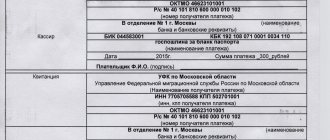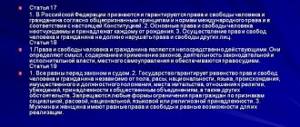Declaring a citizen dead
The legislation of the Russian Federation provides for cases when a citizen can be declared dead in court. Previously, a person only needed to be absent for 3 years for the court to recognize his death.
Now, according to the Civil Code, he is declared dead if his whereabouts are not known for 5 years.
In a case where a citizen goes missing under circumstances that threaten his life and health, he may be declared dead after 6 months.
Another procedure for declaring dead military personnel who went missing during hostilities by the court.
The norms of civil law establish that the death of a person who disappeared during the war can be recognized only 2 years after its end.
Any interested citizen has the right to file an application with the court. In this case, such a person can be both relatives of the missing person and persons who need this to protect their interests. In addition, the application can be submitted by officials, that is, employees of the prosecutor's office, police or court, who need to establish the fact of the death of a citizen.
The application must contain:
- The purpose for which the applicant needs to confirm the death of a person. This could be a divorce, assignment of social benefits, etc.
- All known circumstances related to the disappearance of the person must be indicated.
- If a citizen disappeared during military operations, it is necessary to clarify the date of their end.
All application requirements must be met by the applicant. Otherwise, legal proceedings will not begin and the death of the person will not be recognized. The court also establishes the legal consequences for the applicant of establishing the fact of death. If there are no legal consequences for him, the court may refuse to register the death.
During the court hearing, the circumstances of the person’s disappearance are also verified. To do this you need:
- establish the last place of residence of the person whose death is about to be declared by the court;
- determine what measures were taken to find him;
- establish that it is not possible to find the citizen;
- verification of circumstances confirming that a citizen may be hiding intentionally while being wanted by law enforcement agencies.
If the disappearance of a citizen is associated with circumstances indicating a danger to his life and health, then he will be declared dead six months later. Naturally, the court requires evidence that a person could have died due to an accident, a terrorist attack, etc.
The court also has the right to contact various organizations that may have information about the missing person. These are law enforcement agencies, housing maintenance offices and authorities at the citizen’s last place of work or residence.
The court hearing, during which the issue of establishing the fact of the death of a citizen and making an official record of this in the registry office is considered, is always open. In this case, a mandatory condition is the presence of a prosecutor’s office employee who exercises some supervision over the consideration of the case.
If the prosecutor does not appear at the court hearing, although he was warned about its holding in advance, the court postpones the trial.
Need help from an experienced lawyer?
We solve the most complex cases in favor of the client!
+7
How documents are restored
To submit any application for restoration of his rights, a citizen will have to cancel the entry in the registry office about his death.
You can find more complete information on the topic in ConsultantPlus. Free trial access to the system for 2 days.
In Art. 75 of the Law of the Russian Federation “On Acts of Civil Status” dated November 15, 1997 No. 143-FZ provides for the possibility of making changes to the death record on the basis of a court decision made in accordance with the provisions of Art. 280 Civil Code of the Russian Federation. The decision is sent by the court itself to the civil registry office that previously recorded the death, within 3 days after it was made. It can also be ordered by the court for immediate execution (Article 212 of the Code of Civil Procedure of the Russian Federation).
After changing the entry in the registry office database, the person will be officially recognized as alive and will have the right to receive a passport and other documents.
From this moment on, he receives every opportunity to restore his legal status, using any methods permitted by law, which can be read about in the article “Protection of civil rights - forms and methods of protection.” These may be claims:
- on invalidating the cancellation of registration at the place of residence;
- reinstatement at work;
- abolishing the adoption of children;
- restoration of the period of entry into inheritance.
IMPORTANT! In each case, it will be necessary to file a separate claim; it is impossible to resolve all these issues in one statement of claim to recognize a person as alive.
Cancellation of a court decision declaring a citizen dead
What are the consequences of the appearance of a citizen declared dead? The law allows for the possibility of making an error and allows the court to reverse its decision if a citizen declared dead appears.
This can only be done in court. It is on the basis of a court decision that the death record of a given person is annulled.
The application can be submitted by either the citizen himself or an interested person.
By appearance, the law means the arrival of a person previously declared dead at his place of permanent residence. And it makes no difference whether the citizen has arrived for good or is going to stay for a while.
Also, the basis for canceling a decision is the discovery of the person’s place of residence. To do this, the applicant must have evidence that the citizen declared dead is in a certain place.
Restoration of property rights
The declared citizen has the right to restore his property rights (Article 46 of the Civil Code of the Russian Federation). The consequences of the appearance of a citizen declared dead implies:
- return of property transferred free of charge to another citizen, provided that it has been preserved;
- return of property transferred as a result of a compensated transaction. The only condition is the presence of evidence confirming the recipient’s awareness that the owner of the property is alive;
- receiving a share of property acquired during marriage.
As for cash, shares or bonds issued to bearer, they are not subject to return (Article 302 of the Civil Code of the Russian Federation).
Rights of a citizen in respect of whom the decision to declare him dead has been canceled
The legal capacity of a citizen declared dead does not need to be restored. The fact is that he retains his rights even if the court declared him dead, since the fact of death itself has not been established. That is, despite the decision made by the court, he remains legally competent.
It follows from this that all legal actions that a citizen performed while in the status of a deceased person do not lose their force. And all concluded agreements and powers of attorney issued by them are considered valid.
Also, recognition as deceased does not affect the subjective rights of a person that were acquired in a place where they did not know about the court decision. Naturally, establishing this fact will require evidence.
The law specifically states that a citizen can restore only those rights that were transferred after he was recognized as dead to other persons, including heirs.
Rights of a personal nature are not subject to restoration, for example, carrying out legal actions, performing work, etc. But the legislation has a special attitude towards restoring property rights to property.
Peculiarities of reversing the decision to declare deceased (unknown missing)
The law does not directly indicate the list of persons who can apply to cancel a decision to recognize a citizen as dead or missing.
Of course, this could be the citizen himself, since he is the most interested person in this situation. These may also be representatives of those bodies that, due to the recognition of a citizen as deceased (missing), bear responsibilities. For example, the Pension Fund of the Russian Federation, local administration, social security authorities, as well as the children or parents of this citizen.
To make a positive decision, it is sufficient to provide reliable information about the actual location of the person. This could be certificates from police departments about the termination of the search in connection with establishing his whereabouts, certificates from places of imprisonment.
The basis for drawing up the application will be the circumstances that were included in the initial court decision.
Return of property belonging to a citizen, if he appears
The property is returned, since the grounds for its transfer to other persons disappear due to the appearance of the owner. He has the right to reclaim the property after the records of his death are cancelled.
The restoration of ownership of property is regulated by the Civil Code, according to which a person declared dead has every reason to return it back. True, in this case you need to know some nuances.
According to Article 46, a person declared dead, upon return, has the right to claim back his property received by another person free of charge.
The law considers this fair, since in this case a citizen who received property without additional expenses does not incur losses when returning it. At the same time, some property specified in Article 302 of the Civil Code of the Russian Federation is not returned to the owner.
If the heirs refuse to return the property transferred to them, the owner has the right to file a corresponding claim in court. Property that is located in good faith owners can be seized only on the grounds provided for in Article 302 of the Civil Code of the Russian Federation.
If property is confiscated by the court, it is obliged to resolve the controversial situation. For example, the person who received the property may demand reimbursement of material costs for its maintenance, etc. In addition, the illegal owner may keep all the improvements to the property if it is possible to separate one from the other without causing damage.
If the property generates income, then he is obliged to compensate the owner for the amount that he received or could have received during the time when he discovered that he was in illegal possession of the property.
How to apply to cancel a decision to declare someone dead (missing)
An application to cancel the decision to recognize the person as deceased (missing) is submitted to the court that made the decision in the case. In this case, no new civil case is initiated. The court resumes the proceedings and makes a new decision in the same proceedings in which the citizen was declared missing or declared dead.
The court accepts an application to cancel the decision to declare him dead (missing), regardless of how much time has passed since the date of such a decision. That is, the statute of limitations rules do not apply to such cases.
Before submitting an application, you must pay a state fee of 300 rubles.
Restoration of a marriage terminated due to a citizen being declared dead
According to Family Law, if a person is declared dead by a court, his marriage automatically ends.
If the citizen appears, the marriage can be restored only by mutual consent of the spouses.
If during the absence of a citizen the spouse registered a new marriage, according to the law it is considered valid.
In the case where the family of a person recognized as deceased received a pension for the loss of a breadwinner, with his appearance they lose the right to these payments.
Consequences of the appearance of a person declared dead, not of a property nature
At the time of declaration of death, the person was in various relationships:
- with the employer;
- family members;
- government agencies.
He will be able to restore some of his rights. The citizen will have to renew his rights in the following order:
- Family legal relations. According to Art. 26 of the RF IC, in the event of the appearance of the “resurrected” spouse and the cancellation of the corresponding court decision, the marriage can be restored by the civil registry office upon a joint application of the spouses, if during this time the second spouse has not entered into a new marriage.
- Hereditary. According to Art. 1154 of the Civil Code of the Russian Federation, if a person was declared dead and for this reason missed the deadline for entering into the inheritance of another deceased relative, he can file a claim to restore the deadline within 6 months after he was declared alive.
- Labor. An employment contract with a citizen declared dead is terminated on the grounds provided for in clause 6, part 1, art. 83 Labor Code of the Russian Federation. There is practically no practice of restoring labor relations in court, since the grounds for dismissal were lawful. By analogy with clause 3 of Art. 46 of the Civil Code of the Russian Federation, such a claim will be possible if the employer at the time of termination of the contract knew that the citizen was alive.
- In the field of pensions. If the citizen appears, the Russian Pension Fund will be obliged to demand the cancellation of pensions previously assigned in the event of the loss of a breadwinner.
Judicial practice in cases of declaring a citizen missing
Author inspired by the movie "Blame the Raccoon" (Wakefield,
), decided to investigate the practice of recognizing citizens as missing. The subject of proof in cases of this category includes the fact of interest of the applicant, who must indicate for what purpose he needs to recognize the citizen as missing.
Analyzing the problems of the applicant's interest, the author found a paradoxical appeal ruling of the Stavropol Regional Court, which overturned the decision to recognize serviceman S.N. Oskin. unknown missing at the request of the commander of the military unit. In the appeal, the military prosecutor stated his position: recognition of a serviceman as missing due to unauthorized abandonment of a military unit does not entail additional rights and obligations for the commander of the military unit, therefore, the commander of the military unit is not an interested party, recognition of a serviceman as missing with his subsequent exclusion from the ranks military unit will lead to the impossibility of bringing him to criminal liability under Part 1 of Art. 337 of the Criminal Code of the Russian Federation, since he will cease to be a military serviceman. The appellate court agreed with the arguments of the military prosecutor and overturned the decision on the grounds that the commander of the military unit was not interested: the confession of S.N. Oskin. missing persons is necessary for the applicant to be removed from the list of the military unit, but for the applicant this does not entail any legal consequences, which means that he does not have the right to go to court with such a requirement[1]. We believe that the commander of the military unit could not submit the corresponding application to the court as an individual, and not as a representative of the military unit. The interest of the military unit in eliminating the uncertainty caused by the absence of military personnel enrolled in the lists of military personnel is beyond doubt.
In addition to the interest of the applicant in cases of unknown absence, the facts of the absentee’s place of residence must be proven; absence at the place of residence of information about the citizen’s place of residence during the year. How to prove these facts, how much evidence should be presented to the court? In the case of recognizing G. as missing, the Nikulinsky District Court of Moscow examined documents provided by 23 (!) bodies and organizations: an extract from the house register and registration card, a certificate from the department of address and reference work and information resources of the Federal Migration Service of Russia; messages about the lack of information and appeals from G. from the Department of Social Protection of the Population of the District, the District Government, the branch of the pension fund, the Rosreestr department, the military commissariat, the Russian Post, the tax authority; reports of the absence of requests for medical help from psychoneurological and narcological clinics, two city clinics, a clinical diagnostic center, an ambulance and emergency medical care station, and the department for supporting the activities of state health care institutions; information from the Federal Migration Service of Russia, Information Center of the Main Directorate of Internal Affairs for the Moscow Region, ZIC of the Main Directorate of the Ministry of Internal Affairs of Russia for Moscow, Department of Internal Affairs for the region, BRNS of the Main Directorate of the Ministry of Internal Affairs of Russia for Moscow, TsORI UT of the Ministry of Internal Affairs of Russia for the Central Federal District, Criminal Investigation Department of the Main Directorate of the Ministry of Internal Affairs of the Russian Federation for Moscow [2]. It appears that in this case the burden of proof was fulfilled with some redundancy.
The literature emphasizes the need for investigative measures by law enforcement agencies both before going to court and as part of the consideration of a case of unknown absence[3]. However, there are cases of recognition of a citizen as missing without such a search. Thus, the Gusinoozersky City Court of the Republic of Buryatia recognized K. as missing, indicating that the failure of close relatives to contact the internal affairs bodies in the prescribed manner with a statement about his search, the absence of a search case through the Department of Internal Affairs, should not infringe on the rights of the applicant and her minor daughter, who claims for a survivor's pension. Search activities against K. were carried out only by the Federal Bailiff Service and were aimed at establishing the location of the debtor[4]. In judicial practice there is also an opposite approach. Thus, the Serebryano-Prudsky District Court of the Moscow Region refused to recognize a citizen as missing with the following justification: the missing absence is deliberate, since it has been established that there are circumstances giving reason to believe that the citizen may be intentionally hiding due to the fact that he does not want to pay alimony. child. At the same time, the interested party - the bailiff - supported the demands to recognize the citizen as missing, confirming that his location is unknown, and the search efforts of the FSSP did not produce results[5].
So what is the significance of the fact that a citizen deliberately fails to report his location to law enforcement agencies? The Kominternovsky District Court of Voronezh recognized the citizen as missing, indicating that the fact of his being on the federal wanted list cannot serve as a basis for refusing to satisfy the application, since recognizing a citizen as missing in court, unlike declaring a citizen dead, is not a basis to terminate the execution of a sentence or to terminate the federal search for a convicted person. On the other hand, the possibility of acquiring a means of subsistence (the right to a survivor's pension) by a minor child, in whose interests the applicant is applying, given the length of time there is no information about his father, cannot be ensured in any other way than by recognizing the latter as missing [ 6].
We do not consider the search by the internal affairs bodies to be a prerequisite for the implementation of the procedural right of the interested person to go to court, but we cannot fail to note the importance of search activities. It is necessary to look for a citizen in respect of whom the issue of recognizing him as missing is being decided, and one must look well, which is not always done. For example, the Pokrovsky District Court of the Oryol Region overturned the decision to recognize E.A. Kulikova as missing, from whose explanation it follows that the mother who applied to the court to recognize her daughter as missing had information about the whereabouts of Kulikova, in addition, it was possible to contact Kulikova herself maintain communication through the social network VKontakte. Cases on the reversal of decisions to recognize a missing person often, like a litmus test, show shortcomings made in special proceedings to recognize a citizen as missing.
In conclusion, we note that the institution of unknown absence is a means of protecting not only the absent person himself, but also persons associated with him in any legal relationship, as well as society and the state. In order to ensure a balance of the rights and interests of all listed entities, the legislator should distribute the risks of uncertainty caused by the actual absence of a person and the unknown place of his stay.
Publication on the topic:
Shodonova M.E., Dugaron E.Ts. Problems of the Institute of Unknown Absence // Family and Housing Law. 2021. No. 3. P. 23-27.
[1] Appeal ruling of the Stavropol Regional Court dated April 16, 2014 in case No. 33-2116/2013.
[2] Decision of the Nikulinsky District Court of Moscow dated February 16, 2012 in case No. 2-528/12.
[3] See, for example: Yurchenko A.K. Unknown absence according to Soviet civil law: Author's abstract. dis. ...cand. legal Sci. L. 1952. P. 17. Popova Yu.A. Recognizing citizens as missing and declaring them dead in civil proceedings: Author's abstract. dis. ...cand. legal Sci. M. 1977. P. 9.
[4] Decision of the Gusinoozersk City Court of the Republic of Buryatia dated September 30, 2015 in case No. 2-873/2015.
[5] Decision of the Serebryano-Prudsky District Court of the Moscow Region dated September 19, 2014 in case No. 2-606/2014.
[6] Decision of the Kominternovsky District Court of Voronezh dated January 19, 2012 in case No. 2-108/12.










